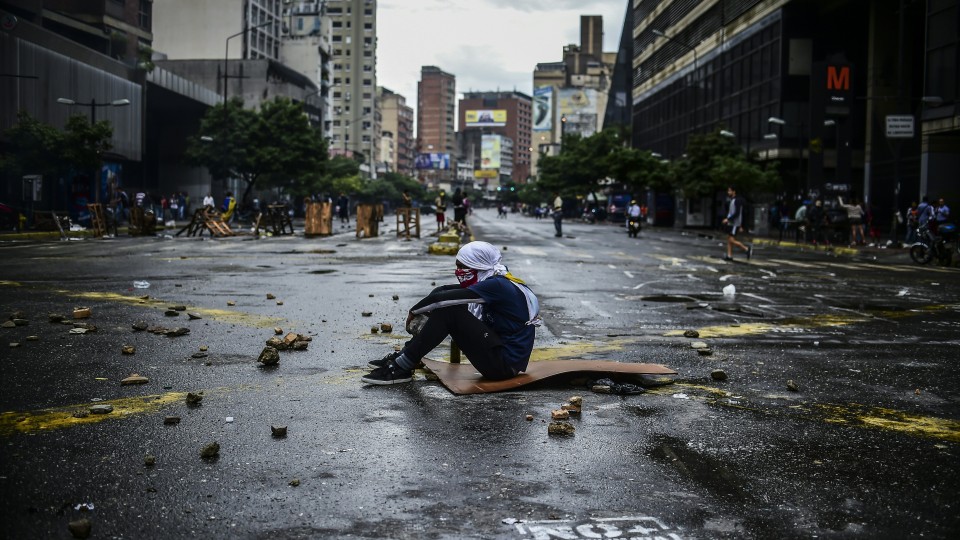Venezuelan President Nicolas Maduro was pushing forward Saturday with a controversial weekend vote to choose a new body to rewrite the constitution, despite growing domestic political opposition, international condemnation and deadly protests.
On Friday, his forces faced small groups of protesters defying a ban he had imposed on demonstrations. A day earlier, Maduro warned that anyone taking part in protests against his “Constituent Assembly” risked up to 10 years in prison.
The threat appeared to dampen public anti-government demonstrations of the sort that, in the past four months, have led to 113 deaths — eight of them during a two-day general strike that ended Thursday.
The most recent reported fatality occurred Friday when an 18-year old protester was killed in San Cristobal.
Human rights organizations said another activist, a 23-year-old violinist famous for playing at anti-government protests, had been arrested in Caracas. An opposition mayor, Alfredo Ramos, was also arrested for not lifting barricades under a court order.
Meanwhile, international censure of Maduro remained fierce.
US Vice President Mike Pence spoke by telephone to a detained prominent Venezuelan opposition leader, Leopoldo Lopez, who early this month was moved from prison to house arrest.
In implicit support for the opposition, Pence praised Lopez’s “courage.”
He also called for the “unconditional release of all political prisoners in Venezuela, free and fair elections, restoration of the National Assembly, and respect for human rights in Venezuela,” a statement from his office said.
The United Nations said Friday that Maduro’s government must allow peaceful protests and freedom of expression.
The United States this week imposed sanctions on 13 current and former Venezuelan officials, including police and army chiefs, over Maduro’s plan.
Colombia’s President, Juan Manuel Santos, said his country would not recognize the results of Sunday’s election in Venezuela, calling the basis of the Constituent Assembly “spurious.”
Yet Maduro has remained determined to see through his plan, with backing from a loyal military.
“We have a card to play: a card that will win this game. And that card is the National Constituent Assembly,” he said.
He urged the opposition to stop its “insurrection” and hold talks instead. The leftist president has repeatedly accused the US of fomenting the unrest against him.
The new assembly would comprise 545 citizens chosen from across the country, and from societal sectors over which Maduro’s government holds influence.
The opposition, which brands the election of the body a ploy by an unpopular “dictator” to cling to power, has called for a boycott of the vote.
Some 70 percent of Venezuelans oppose plans for the constituent assembly, and 80 percent reject Maduro’s leadership, according to the a polling firm.
